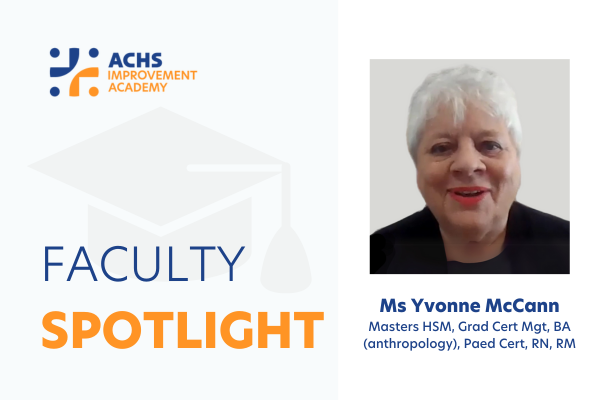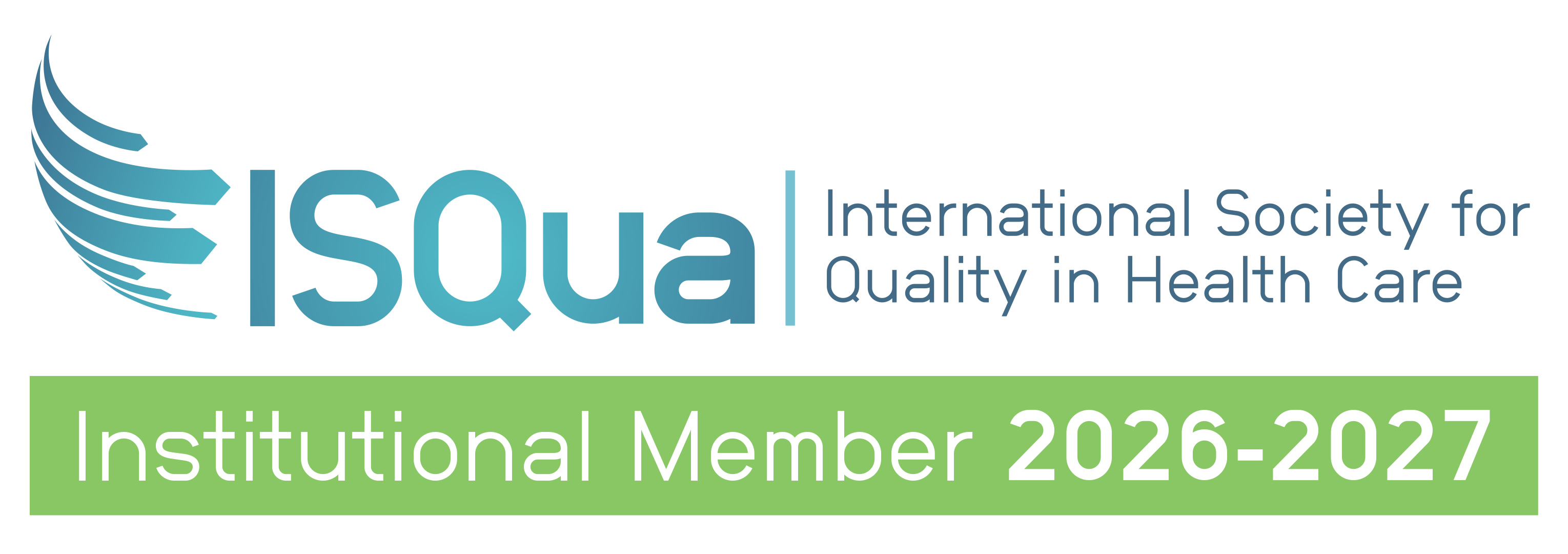.png?width=800&auto=format)
Insights from an Experienced Healthcare Professional and Assessor on Comprehensive Care
Welcome to the ACHS Improvement Academy Faculty Spotlight series, where we highlight the expertise and perspectives of esteemed colleagues on key topics in healthcare.
In this edition, we are pleased to feature Ms Yvonne McCann who is the facilitator for the ACHS Improvement Academy Comprehensive Care Standard 5 training. The training supports clinicians to develop a deep understanding of the requirements of Standard 5, ensuring it is linked to both the governance and partnering with consumers standard.
Yvonne has more than 40 years' experience working at national, state, area and local health services as a clinician, educator, manager and in senior management positions. In a recent interview, we asked Yvonne about her career journey, insights from her time as an ACHS Assessor, and the importance of Comprehensive Care in today’s healthcare landscape.
1. You have had an extensive career working across clinical, educational, and management roles. What inspired you to pursue a career in healthcare?
I knew I wanted to work with children and expected to be a teacher, however home circumstances encouraged me to apply to be a children’s nurse. After graduating from the Royal Alexandra Hospital for Children, I went on to study and graduate with midwifery and post graduate paediatrics, and as they say the rest is history.
I have had a very fortunate career across much of Australia and opportunity to study overseas also. This career has provided me with many lessons, enabled connection with amazing people. Working as an Assessor provided opportunities to give back some of my lessons learnt in addition to understanding safety and quality so much more.
2. From your experience as an ACHS Assessor, what changes have you observed in accreditation and healthcare quality standards over the years?
I seem to remember quality and safety was always a focus, particularly working with children and babies, but my experiences as an Assessor has seen a much more coordinated and diligent approach to measuring the quality and safety and ensuring harm is minimised. Also, the concept of patient centred care is now more evident because previously clinicians determined what was to happen and the consumer was often not involved in decision making.
3. As an educator who has taught across metropolitan and regional healthcare organisations, why is education and workforce support crucial in the accreditation processes?
The answer is, it is imperative. An informed, skilled, competent, committed workforce is the cornerstone of quality and safety. Accreditation is our way of assessing the systems, processes, improvements, and application of best practice is consistent and understood by all staff.
4. You facilitate the Improvement Academy training, Comprehensive Care Standard 5, which is a critical component of the NSQHS Standards. Why is Standard 5 so important to quality and patient safety?
Comprehensive care (ST 5, NSQSHC 2nd ED) encapsulates so many of the basics of care, plus provides opportunity to demonstrate working with the health care consumer. By implementing the actions in Standard 5 there is a greater likelihood to be a more consistent holistic model of care, reduced hazards and opportunities for error and a better experience for the consumer, which supports a greater sense of satisfaction in their work for the staff.
5. What do you see as the future of Comprehensive Care in Australian healthcare? Are there any emerging trends that organisations should be aware of?
Comprehensive Care is the basis of good care, meeting the consumer needs, and ensuring potential mistakes are mitigated. Healthcare must have a personal, human framework. Providing good care is not a factory model.
The big difference going forward is connecting with the patients and clients at a personal and holistic level, understanding not just their healthcare needs but also their social, environmental and personal situation. We all have a past, present and future, we see through a variety of lens based on that. If we, the clinicians, and other staff, see the patients/clients/consumers for who they are and what we can do to assist them, as determined by the patient/ client/consumer, then health care services will benefit.
Thank you, Yvonne, for sharing your insights and experience with us. You can learn more or register for Comprehensive Care Standard 5 here.

